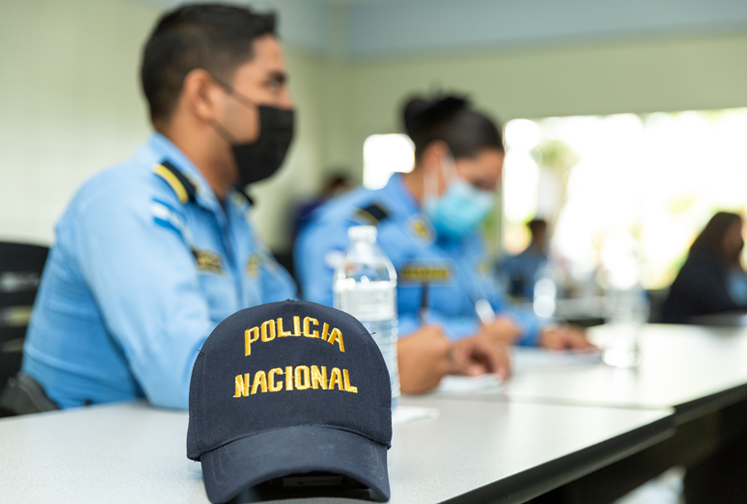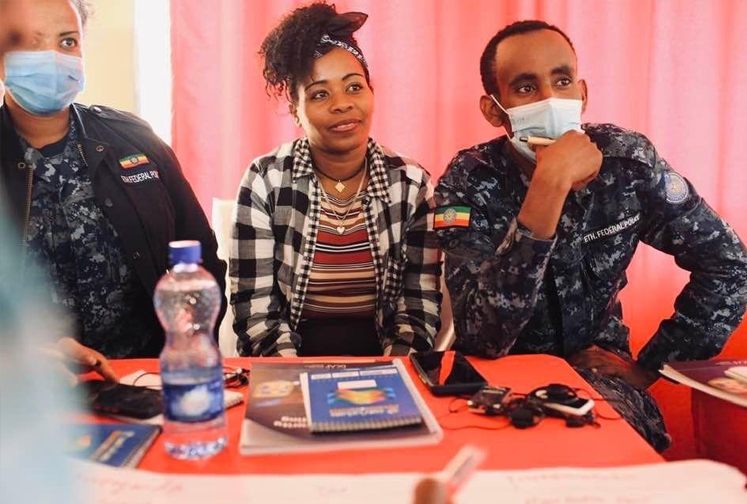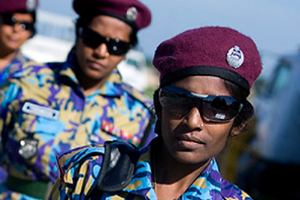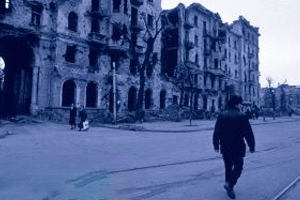SSG/R for beginners: what it is, and why it matters
Understanding security sector governance and reform concepts and actors can be challenging.
Whether it is the multitude of actors from different backgrounds, their involvement in the various processes, or the goals and methods they pursue to achieve peace and security, all this requires a broad vision of this incredibly complex process to fall into place.
Combine that with the fact that it touches on the most delicate and often secretive elements and institutions and you know why SSG/R can be complicated to grasp. We’ve got your back.
Let’s start with the basics.
WHAT IS THE SECURITY SECTOR?
These are the institutions and organizations responsible for maintaining peace, security, and public order in a country. That includes the military, police, intelligence agencies, border control agencies parliaments, ombuds institutions, as well as the judicial and correctional systems.

Photo:David Alvarado
WHAT IS GOOD SECURITY SECTOR GOVERNANCE?
It means making sure that these institutions are accountable to the government and the people they serve, and that they operate under effective democratic oversight, in a transparent and responsible manner.
In simpler terms, good security sector governance is about ensuring that the people in charge of keeping the population safe are doing a good job, following the rule of law, and respecting human rights. Done right, this can help reduce conflict and increase trust and confidence in the government, thus helping to create the conditions for peace and sustainable development.
WHAT IS SECURITY SECTOR REFORM?
It’s the process of putting in place the policies and practices that will ensure good governance. Every country and society is different and takes a different path to reform, but it usually includes a combination of changes to laws, policies, and practices, backed up with behaviour change through training and education of lawmakers, police, military and other security forces.
While these reforms must be part of national, locally-owned processes, many are supported financially or technically by international donors and multilateral organizations such as the United Nations and the African Union who have an interest in helping to reduce conflict and create stability.

Photo:DCAF
WHY DOES IT MATTER?
A well-governed and accountable security sector helps build the confidence and trust of citizens in their government, which is essential for a healthy democracy.
When the legitimacy of the state is tarnished by a lack of rule of law, human rights abuses perpetrated by security forces, or their inability to provide effective security for people in their homes and communities, it fuels chronic fragility and, in turn, underdevelopment.
An effective security sector governance enhances the safety and security of the state and its people, contributes to sustainable peace by reducing conflict and poverty, and help to build the foundation for a prosperous society.
LEARN MORE

READ - Backgrounders series
This series has been created especially for beginners. From peace processes to human rights and the connection between SSG/R and SDG 16, it covers all you need to know to understand what is at stake in the security sector.

LEARN - Introduction to Security Sector Reform and Governance
The course explains the key principles, contexts, and actors of the security sector. It draws on insights from experienced practitioners and practical examples, to introduce both political and technical aspects of SSG/R.

LEARN - Introduction to Conflict Analysis
This course shares conflict analysis principles and skills tailored to the Eastern Europe, Caucasus and Central Asia. It addresses the causes of, and actors involved in conflict, the evolution of conflict, and various aspects of conflict analysis.
WATCH - Parliaments’ contribution to Security Sector Governance
In less than two minutes, understand why parliaments are crucial to security sector governance.
Also available in French
WATCH - Security Sector Governance and Sustainable Development Goal 16
Another very short video to understand how security sector governance contributes to SDG16. The sustainable development goal dedicated to peaceful, just and inclusive societies that highlights the importance of security and justice institutions for sustainable development.
Also available in French
 Share on Facebook
Share on Facebook Share on Linkedin
Share on Linkedin Share on Twitter
Share on Twitter